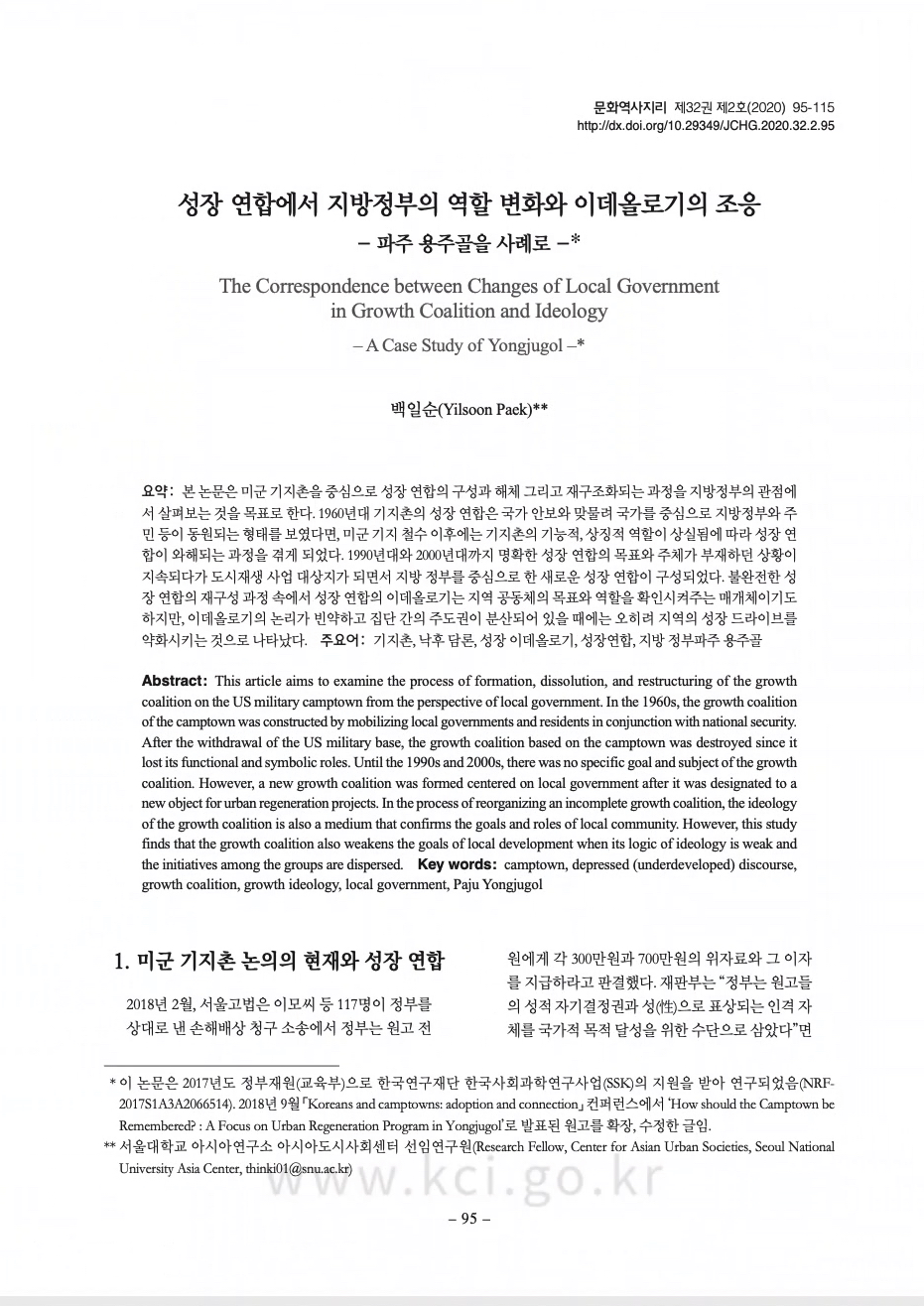
11 11월 [Article] 성장 연합에서 지방정부의 역할 변화와 이데올로기의 조응 – 파주 용주골을 사례로 –
[논문출간 안내]
성장 연합에서 지방정부의 역할 변화와 이데올로기의 조응 – 파주 용주골을 사례로 –
The Correspondence between Changes of Local Government in Growth Coalition and Ideology –A Case Study of Yongjugol –
본 논문은 미군 기지촌을 중심으로 성장 연합의 구성과 해체 그리고 재구조화되는 과정을 지방정부의 관점에서 살펴보는 것을 목표로 한다. 1960년대 기지촌의 성장 연합은 국가 안보와 맞물려 국가를 중심으로 지방정부와 주민 등이 동원되는 형태를 보였다면, 미군 기지 철수 이후에는 기지촌의 기능적, 상징적 역할이 상실됨에 따라 성장 연합이 와해되는 과정을 겪게 되었다. 1990년대와 2000년대까지 명확한 성장 연합의 목표와 주체가 부재하던 상황이지속되다가 도시재생 사업 대상지가 되면서 지방 정부를 중심으로 한 새로운 성장 연합이 구성되었다. 불완전한 성장 연합의 재구성 과정 속에서 성장 연합의 이데올로기는 지역 공동체의 목표와 역할을 확인시켜주는 매개체이기도하지만, 이데올로기의 논리가 빈약하고 집단 간의 주도권이 분산되어 있을 때에는 오히려 지역의 성장 드라이브를약화시키는 것으로 나타났다.
This article aims to examine the process of formation, dissolution, and restructuring of the growth coalition on the US military camptown from the perspective of local government. In the 1960s, the growth coalition of the camptown was constructed by mobilizing local governments and residents in conjunction with national security. After the withdrawal of the US military base, the growth coalition based on the camptown was destroyed since it lost its functional and symbolic roles. Until the 1990s and 2000s, there was no specific goal and subject of the growth coalition. However, a new growth coalition was formed centered on local government after it was designated to a new object for urban regeneration projects. In the process of reorganizing an incomplete growth coalition, the ideology of the growth coalition is also a medium that confirms the goals and roles of local community. However, this study finds that the growth coalition also weakens the goals of local development when its logic of ideology is weak and the initiatives among the groups are dispersed.
키워드
camptown, depressed (underdeveloped) discourse, growth coalition, growth ideology, local government, Paju Yongjugol


